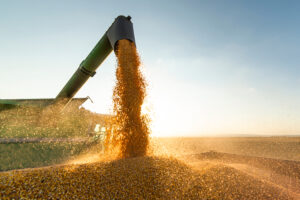The current situation with the purchase of winter grains in Serbia is very unfavorable. The main problem is the low initial purchase price of wheat and barley, which continued to fall during the harvest, causing additional complications in the entire chain from producer to exporter.

Miloš Nikšić from the company “Nikša agrar”, which deals with the purchase of grain, points out that wheat yields this year were very variable, depending on the amount and distribution of rainfall. The yields at the state level were average, but this is not true for every region. Barley, due to earlier ripening, suffered more damage due to lack of rainfall and had below average yields.
How to solve the problems faced by the purchase of winter grains?
The quality of wheat and barley was generally good, but again variable by region. “Due to the slightly earlier ripening, the barley suffered more damage due to the lack of timely rainfall, so the yield of barley this season is slightly below the regular average yields. “The quality of wheat and barley was generally good, although, again depending on rainfall and agrotechnical measures, it was varied by region,” Nikšić emphasized.


The prices of wheat and barley fell by 1.5-2.5 dinars per kilogram during the harvest. And after the harvest, they continued to fall by an additional 0.5-1 dinars per kilogram. This drop in prices is a major problem in the redemption process. There is hope that the situation will improve when commodity reserve prices are released.
Nikšić actively supports the temporary state ban on oil exports. “At this moment, we are waiting for the release of the price of commodity reserves, which we hope will manage to improve the situation with grain prices at least a little. We also welcome the temporary state ban on the export of oil whose current demand and price in the region is on the rise. Such a measure would achieve the highest possible export prices of sunflower oil processors. As a final result, it would have a higher purchase price in the upcoming sunflower harvest and thus again help the primary agricultural producers who have already been affected for the last two years. First with droughts, and then with depressions in the prices of primary agricultural products last year,” Nikšić added.
Source: Good morning
Source: boljazemlja.com


